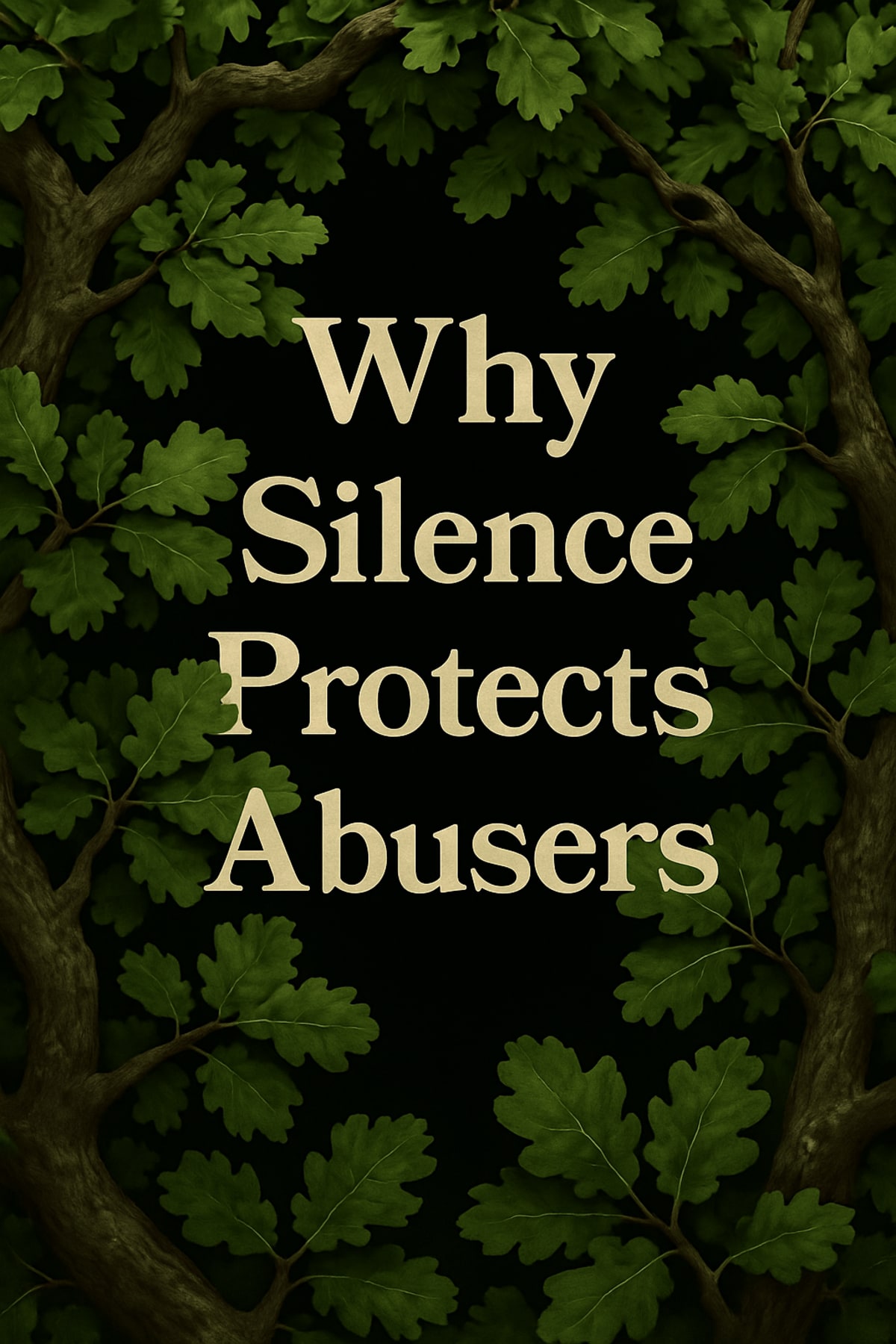Silence is not neutral. It does not sit in the middle, waiting to be weighed or measured. Silence always tips the scale in favor of the abuser. Every time a survivor is pressured to stay quiet, every time their voice is dismissed or doubted, the abuser gains more power. They thrive in the shadows of secrecy, while the survivor is left carrying both the weight of the abuse and the burden of silence.
Silence is the Abuser’s Shield
Abusers rely on secrecy to maintain control. When survivors remain silent; whether from fear, shame, or the belief that no one will believe them; the abuser’s actions are hidden. They get to rewrite the story, paint themselves as innocent, and even twist the narrative to blame their victim. Silence is the mask that allows abuse to continue.
“Silence doesn’t just hide the abuse. It protects the abuser.”
How Society Enforces Silence
Survivors don’t stay quiet because they want to; they stay quiet because they are taught to.
- Victim-blaming: Survivors are often told they provoked it, deserved it, or misunderstood what happened.
- Fear of disbelief: Many have seen how others before them were ignored or ridiculed when they spoke out.
- Family and social pressure: Protecting the abuser’s reputation, career, or status often takes priority over protecting the survivor.
- Cultural and religious norms: Survivors may be told to “keep the peace,” “forgive and forget,” or “not bring shame” to their family or community.
Every one of these messages teaches survivors that their pain matters less than someone else’s comfort.
The Cost of Silence
When silence becomes the only option, the cost is devastating:
- Survivors carry their trauma alone, with no validation or support.
- The cycle of abuse continues unchecked, often claiming more victims.
- Communities and families remain unsafe, because the abuser faces no accountability.
- Survivors may internalize shame and guilt, believing the abuse was somehow their fault.
“Not being believed can hurt more deeply than the abuse itself. One wound is inflicted by a person; the other is inflicted by the world.”
Breaking the Silence
Breaking silence is not easy. It requires courage, community, and compassion. But it is possible.
- Believe Survivors: Listening without judgment is the first and most powerful step.
- Use Your Voice: Speaking up, even if your voice shakes, disrupts the power of silence.
- Find Safe Outlets: Journals, support groups, hotlines, therapy, or trusted allies can hold space when the world won’t.
- Name the Abuse: Calling it what it is strips the abuser of their power to redefine it.
- Stand Together: When survivors and allies speak collectively, it becomes harder for society to look away.
A Call to Action
Survivors are not responsible for the abuse they endured; but reclaiming voice and truth is a step toward healing and justice. Every time silence is broken, the abuser’s shield cracks. Every time a survivor is believed, a cycle of harm weakens. Every time a community chooses truth over comfort, an abuser loses power.
Silence protects abusers. Truth protects survivors.
